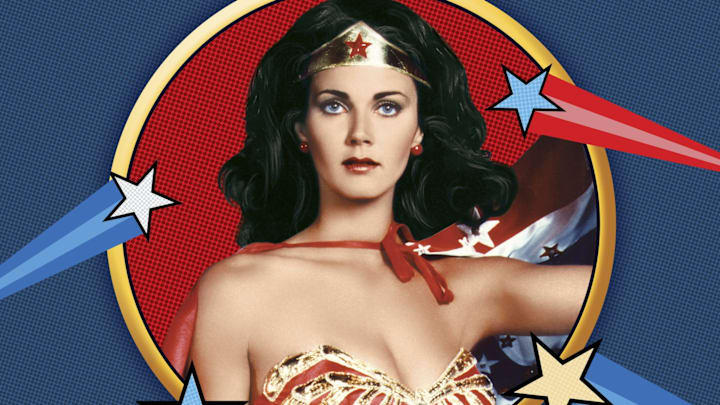For decades, Lynda Carter's portrayal of Wonder Woman in the classic '70s TV series has been considered the definitive version of the legendary DC Comics heroine. It's no surprise, either, because Carter was phenomenal in the role, and the TV show was revolutionary for the character, introducing her to mainstream audiences around the world.
It remained the only really successful adaptation of the character until she arrived in the DC Extended Universe, played by Gal Gadot. And speaking of successful, Wonder Woman ran for three seasons, narrowly avoiding an early cancellation because of its expensive budget and surviving a jump to another network. But why didn't the series carry on after season 3?
Wonder Woman season 4 nearly happened but it was eventually dropped
When Wonder Woman was coming towards the end of its third season, CBS was planning a fourth season that would relaunch the show. Unfortunately, between the show's declining ratings, the lack of movement in getting that fourth season off the ground, and Lynda Carter's success as a music artist, the show was eventually dropped.
It's a shame that we didn't get to see what a new chapter for the show would have looked like, because the series was renowned for reinventing itself, as its first season (which aired on ABC) was set in the 1940s during World War II before it moved to CBS and jumped into the 1970s. Its third season was geared towards a younger audience, employing more disco music and featuring more teenage characters.

The fourth season's relaunch would have completely revamped the show, including its setting, as Diana Prince would have moved to Los Angeles after being reassigned to its branch of the IADC, where she would have worked with a host of new characters (with Steve Trevor either playing a reduced role or not featuring at all).
In fact, all of this was set up in the season 3 episode "The Man Who Could Not Die" as it was the last ever episode of the show to be produced. It likely should have been the season 3 finale, but it aired out of sequence, with "The Phantom Of the Rollercoaster" two-parter closing the series out.
Wonder Woman continually evolved to avoid cancellation
Wonder Woman was originally produced by ABC. The network, which also aired Batman a decade prior, was eager to have a series featuring the Amazonian warrior. A 1974 pilot attempted to modernize the character but it was unsuccessful, resulting in the decision to go a more traditional route with the next pilot. With that, The New, Original Wonder Woman starring Lynda Carter premiered in 1975 to high ratings. After a few more special episodes, a full season was produced, which was also incredibly successful for the network.
Even though Wonder Woman was a ratings hit for ABC, its period setting made it a lot more expensive to produce and thus the network was reluctant to renew it for a second season, leaving its future uncertain. However, as ABC made its mind up, Warner Bros. listened to an offer from CBS, who agreed to pick the show up for its second season under one condition: A time jump to the modern day 1970s. And with that, the show became The New Adventures of Wonder Woman.
The '70s setting changed a lot about the show, but Lynda Carter's Wonder Woman was obviously still at the center of it (it helps when you play an immortal Amazonian that ages at a much slower rate). Lyle Waggoner returned, too, but this time, he played the son of his original character, Steve Trevor Jr. The storylines were now more spy-driven and often involved younger characters - something that would only increase in the third season as CBS hoped to target a younger audience with the show.
From its funky theme song to the more complex storylines it tackled, Wonder Woman was a completely different series by the end of its run. It would have been great to see how it could have reinvented itself further if season 4 had gone ahead.
Even though the show's cancellation felt premature, its legacy has lived on in the decades since and it has now been immortalized on home media and streaming for whole new generations to enjoy. The adventures also continued in a 2014 comic series titled Wonder Woman '77, which told more stories in the world of the classic series. The New, Original Wonder Woman will always have our hearts.
